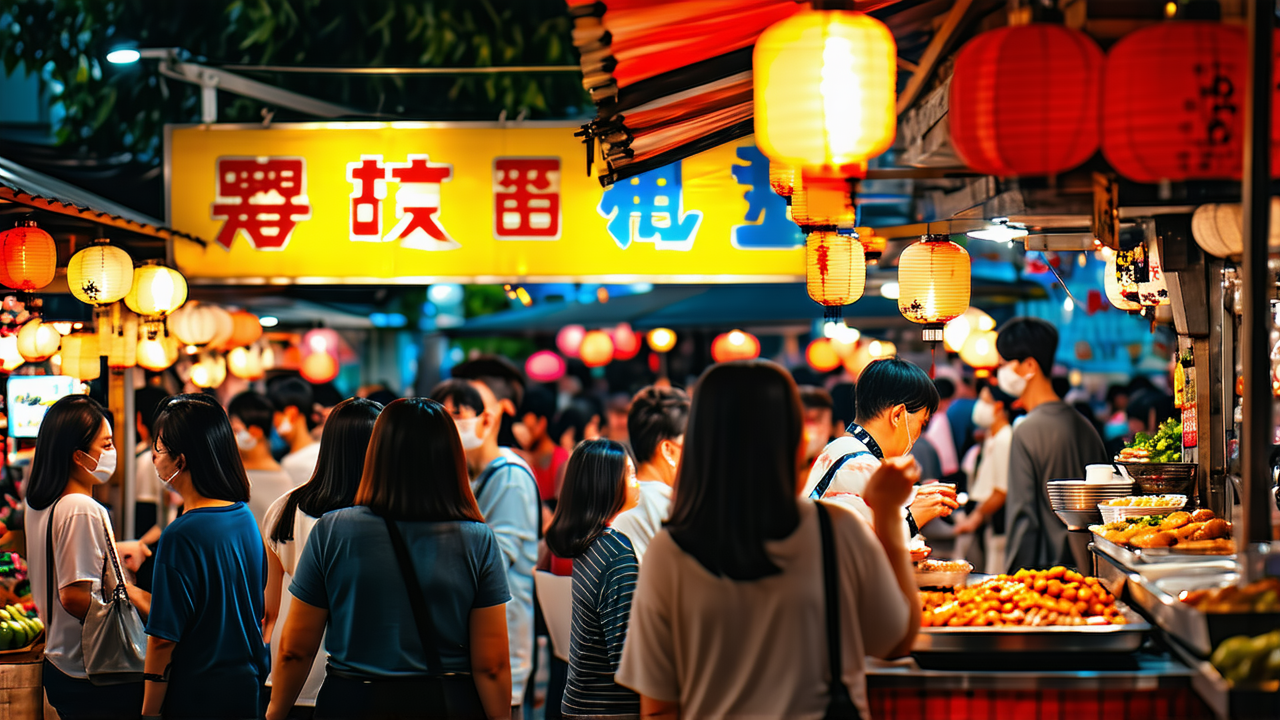Wuxi Jiangsu: 'Moonlight Economy' Reinvigorates Urban 'Vibrancy', Night Markets Light Up New Consumer Landscape
Wuxi Jiangsu: 'Moonlight Economy' Reinvigorates Urban 'Vibrancy', Night Markets Light Up New Consumer Landscape
By: Editor | August 6, 2025
Recently, at the 1969 Creative Industrial Park in Xinwu District, Wuxi, intense construction activity has sparked the curiosity of both locals and tourists. The reason? The area is set to become the largest night market in the Yangtze River Delta region.
“We are working hard for 50 days to create the largest and most atmospheric night food street in the Yangtze River Delta!” said Zhang Jianqiang, the manager of 1969 Creative Industrial Park. This newly planned mega food market will occupy 15,000 square meters, featuring over 300 stalls divided into eight large zones by region, introducing specialty dishes from across the country. It's a one-stop destination for 'eating the nation without leaving Wuxi.'
This is a vivid example of how Jiangsu is reviving the 'moonlight economy' this summer. From night markets to creative night tours, the night economy has become a crucial driver for expanding domestic demand and promoting consumption. By extending consumption time and activating innovative scenarios, it is unleashing strong growth momentum.
Day and Night Boundaries Blurred, Activating New Consumer Ecosystem
During the day, the 1969 Creative Industrial Park attracts the 'Z Generation' with its fashion-forward vibe, but by night, it transforms into a 'food ark' that showcases national specialties and integrates regional cultural elements.
Along the ancient Grand Canal in Liangxi District, every evening, as the lights come on, the 'Shui Tong Tang' real-time theater offers an immersive journey through Wuxi's thousand-year history, from Taibo's migration to modern Wuxi, using 'light and performance' techniques. In Changzhou's Qingguo Alley, the 'Qingguo Wuhua Ji' night market blends the 'Four Refinements' of the Song Dynasty into the experience, allowing visitors to personally engage in incense burning, tea tasting, flower arranging, and painting. Since its opening this summer, it has attracted over 10 million visitors.
Scene Transformation, Expanding Diverse Consumption Spaces
The 'Su Super League' that has gone viral this summer has become a super lever for upgrading the night economy. Throughout the province, cities have creatively moved the 'second live site' of the matches into shopping malls, squares, and pedestrian streets, deeply integrating football passion with consumption scenarios.
On July 5, during the match between Nanjing and Suzhou, Nanjing set up 66 'second live sites,' attracting 254,000 fans and boosting the total number of visitors in the commercial areas to 14.25 million, with total sales reaching 3.4 billion yuan. On July 20, during the 'Su Super Night' in Wuxi, the 'Summer Starry Night Market' at Wuxi Zhaoshang City saw 10,000 visitors, a 150% increase from usual. In Suqian, the 'second live sites' on the day of the main match brought together the excitement of football and the charm of ancient street night markets, increasing the occupancy rate of restaurant merchants by 80%.
Nighttime Gold Mining, Unleashing Immense Consumption Potential
Behind the continued efforts of Jiangsu to promote the 'moonlight economy' lies its immense potential. According to a survey report, China's nighttime economy market size has jumped from 22.54 trillion yuan in 2018 to 50.25 trillion yuan in 2023. In 2024, domestic nighttime tourism spending reached 1.91 trillion yuan, a 21.7% increase.
Jiangsu's 'night economy' practices also validate this trend. According to statistics, in the first half of 2025, the 75 night tourism and cultural consumption clusters across the province received 211 million visitors, with consumption reaching 649.14 billion yuan, and night tourist numbers at scenic spots increasing by 12.62%.
To further explore the 'night economy gold mine,' Jiangsu launched the 'Measures to Flourish the Night Economy and Stimulate Consumption Vitality' at the beginning of this year. The 'Water Charm Jiangsu · Splendid Summer Nights' campaign initiated in July became a vivid example of policy implementation. Following this, various cities have launched innovative initiatives: Xinwu District in Wuxi introduced the 'Government Night Market,' setting up social security, medical insurance, and business registration booths at the Jinhulu Night Market, achieving a 'win-win for convenience and consumption.' Suqian implemented a 'tide-style' governance model, delineating fixed operating 'rivers' and precise operating 'tide' times, and promoting 'one vehicle, one code' management, transforming the once 'dirty, messy, and chaotic' into 'clean and beautiful.'
In October this year, the 'night market aircraft carrier' in Xinwu District of Wuxi is set to launch, carrying not only the dreams of 300 food stalls but also the answers to the city's pursuit of development and warmth in the countless sleepless nights.
